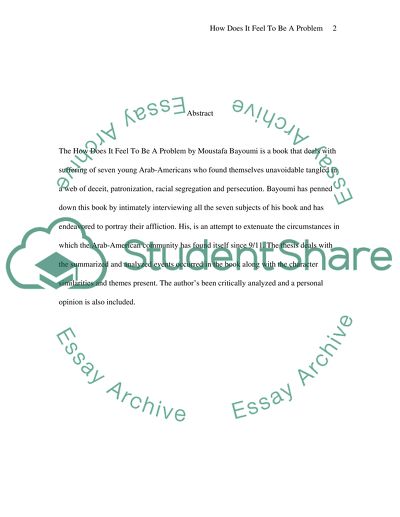Cite this document
(“HOW DOES IT FEEL TO BE A PROBLEM BY MOUSTAFA BAYOUMI Essay”, n.d.)
Retrieved from https://studentshare.org/miscellaneous/1520761-how-does-it-feel-to-be-a-problem-by-moustafa-bayoumi
Retrieved from https://studentshare.org/miscellaneous/1520761-how-does-it-feel-to-be-a-problem-by-moustafa-bayoumi
(HOW DOES IT FEEL TO BE A PROBLEM BY MOUSTAFA BAYOUMI Essay)
https://studentshare.org/miscellaneous/1520761-how-does-it-feel-to-be-a-problem-by-moustafa-bayoumi.
https://studentshare.org/miscellaneous/1520761-how-does-it-feel-to-be-a-problem-by-moustafa-bayoumi.
“HOW DOES IT FEEL TO BE A PROBLEM BY MOUSTAFA BAYOUMI Essay”, n.d. https://studentshare.org/miscellaneous/1520761-how-does-it-feel-to-be-a-problem-by-moustafa-bayoumi.


